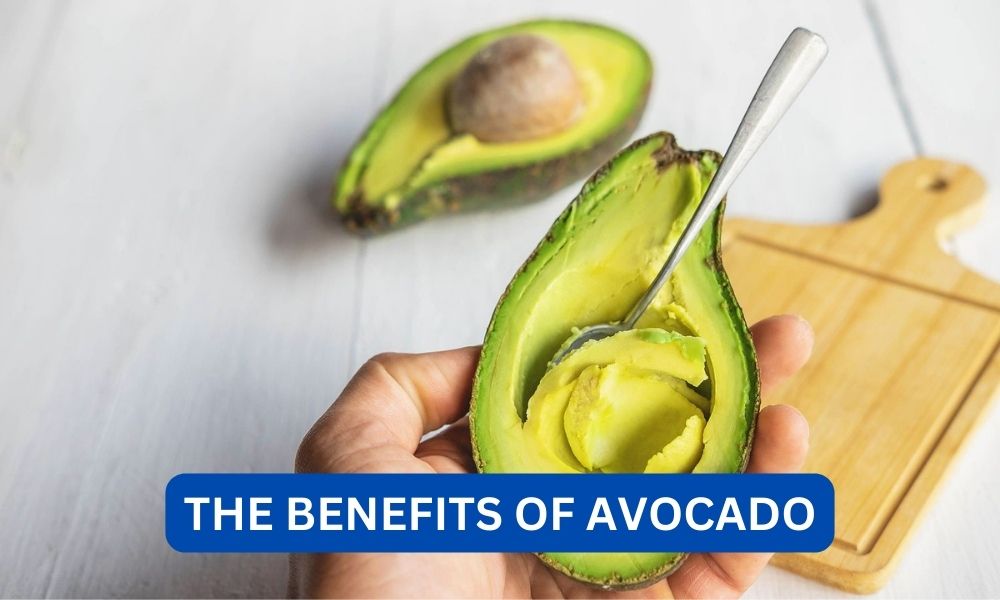Avocado, also known as the “alligator pear,” is a fruit that has gained immense popularity in recent years. It is not only delicious but also packed with essential nutrients and health benefits. This green, creamy fruit is native to Mexico and Central America and is now grown in many other parts of the world. From being a staple in guacamole to being used in smoothies and salads, avocado has become a versatile ingredient in many cuisines. In this article, we will explore the various benefits of avocado and why it should be a part of your regular diet.
Contents
Rich in Nutrients
Avocado is often referred to as a superfood because of its high nutrient content. It is a rich source of vitamins, minerals, and healthy fats. One medium-sized avocado (around 200 grams) contains approximately:
- Vitamin K: 26% of the recommended daily intake (RDI)
- Folate: 20% of the RDI
- Vitamin C: 17% of the RDI
- Potassium: 14% of the RDI
- Vitamin B5: 14% of the RDI
- Vitamin B6: 13% of the RDI
- Vitamin E: 10% of the RDI
- Magnesium: 7% of the RDI
- Copper: 9% of the RDI
- Iron: 5% of the RDI
Avocado also contains small amounts of zinc, manganese, phosphorus, and vitamins A, B1 (thiamine), B2 (riboflavin), and B3 (niacin). It is also a good source of healthy monounsaturated and polyunsaturated fats, which are essential for maintaining a healthy heart and reducing the risk of chronic diseases.
Read:What are the benefits of eating blueberries?Loaded with Antioxidants
Avocado is rich in antioxidants, which are compounds that protect our cells from damage caused by free radicals. Free radicals are unstable molecules that can cause oxidative stress, leading to various diseases such as cancer, heart disease, and premature aging. Avocado contains various antioxidants, including carotenoids, tocopherols, and polyphenols, which help neutralize free radicals and prevent cell damage.
One study found that avocado extract reduced the production of free radicals and increased the activity of antioxidant enzymes in the liver of rats. Another study showed that adding avocado to a salad increased the absorption of antioxidants from other vegetables by up to 15 times. This shows that avocado not only contains antioxidants but also helps our bodies absorb them from other foods.
Good for Heart Health
Heart disease is the leading cause of death worldwide, and diet plays a crucial role in its prevention. Avocado is an excellent addition to a heart-healthy diet as it is rich in monounsaturated and polyunsaturated fats, which have been linked to a reduced risk of heart disease. These healthy fats help lower LDL (bad) cholesterol levels and increase HDL (good) cholesterol levels, thus improving overall heart health.
Read:What are the benefits of drinking bone broth?Moreover, avocado is also a good source of potassium, which is essential for maintaining healthy blood pressure levels. High blood pressure is a significant risk factor for heart disease, and consuming potassium-rich foods like avocado can help lower blood pressure and reduce the risk of heart disease.
May Help with Weight Loss
Avocado is often avoided by people trying to lose weight because of its high-fat content. However, the fats in avocado are healthy and can actually aid in weight loss. The monounsaturated and polyunsaturated fats in avocado help keep you feeling full and satisfied, reducing the chances of overeating. Additionally, avocado is also a good source of fiber, with one medium-sized fruit containing around 13 grams of fiber. Fiber helps slow down digestion and keeps you feeling full for longer, thus reducing calorie intake.
One study found that people who ate half an avocado with their lunch felt 23% more satisfied and had a 28% lower desire to eat in the next five hours compared to those who did not eat avocado. Another study showed that adding avocado to a meal reduced the desire to eat by 40% over a three-hour period and increased feelings of fullness by 26%. These studies suggest that avocado can be a helpful addition to a weight loss diet.
Read:What are the benefits of eating bananasMay Improve Digestive Health
Avocado is a good source of fiber, with one medium-sized fruit containing around 13 grams of fiber. Fiber is essential for maintaining a healthy digestive system as it helps regulate bowel movements and promotes the growth of good bacteria in the gut. A diet rich in fiber has been linked to a reduced risk of digestive disorders such as constipation, diverticulitis, and colon cancer.
Moreover, avocado also contains a type of fiber called pectin, which has been shown to have prebiotic properties. Prebiotics are non-digestible fibers that promote the growth of beneficial bacteria in the gut, thus improving overall digestive health.
May Reduce the Risk of Cancer
Cancer is a leading cause of death worldwide, and diet plays a crucial role in its prevention. Avocado is rich in antioxidants, which help protect our cells from damage and reduce the risk of cancer. Additionally, avocado also contains a compound called lutein, which has been linked to a reduced risk of prostate cancer.
Moreover, the healthy fats in avocado may also play a role in reducing the risk of cancer. One study found that adding avocado to a salad increased the absorption of carotenoids from other vegetables, which are compounds that have been linked to a reduced risk of breast cancer.
May Improve Eye Health
Avocado is a good source of lutein and zeaxanthin, two antioxidants that are essential for maintaining eye health. These antioxidants help protect the eyes from harmful blue light and reduce the risk of age-related macular degeneration, a leading cause of blindness in older adults.
Moreover, the healthy fats in avocado also help with the absorption of these antioxidants, making it an excellent addition to a diet for maintaining healthy eyesight.
May Help with Arthritis Symptoms
Arthritis is a common condition that causes joint pain and stiffness. Avocado contains a compound called phytosterols, which has been shown to have anti-inflammatory properties. Inflammation is a significant contributor to arthritis symptoms, and consuming foods with anti-inflammatory properties, like avocado, may help reduce pain and stiffness in the joints.
Moreover, the healthy fats in avocado may also help with arthritis symptoms. One study found that a diet rich in monounsaturated fats, like those found in avocado, reduced the risk of developing rheumatoid arthritis by 45%.
How to Incorporate Avocado into Your Diet
Now that we know about the various benefits of avocado, let’s look at some ways to incorporate it into our diet:
- Guacamole: This is a classic way to enjoy avocado. Simply mash a ripe avocado with some lime juice, salt, and pepper, and you have a delicious dip for chips or veggies.
- Avocado toast: This has become a popular breakfast option in recent years. Simply spread mashed avocado on whole-grain toast and top it with some salt, pepper, and your favorite toppings like eggs, tomatoes, or smoked salmon.
- Smoothies: Adding half an avocado to your smoothie can make it creamier and more filling. It also adds a dose of healthy fats and nutrients to your drink.
- Salads: Avocado is a great addition to any salad. You can add it sliced, diced, or mashed, depending on your preference.
- Sandwiches and wraps: Instead of using mayonnaise, try spreading mashed avocado on your sandwich or wrap for a healthier and more flavorful option.
Conclusion:
Avocado is a delicious and versatile fruit that is packed with essential nutrients and health benefits. From being a rich source of vitamins, minerals, and antioxidants to helping with weight loss, heart health, and digestive health, avocado has a lot to offer. It is also easy to incorporate into your diet, making it a convenient and healthy addition to any meal. So, next time you’re at the grocery store, make sure to pick up some avocados and reap the many benefits they have to offer.









